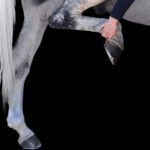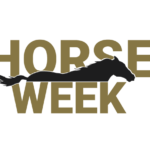
In the horse world, the USA was the biggest winner of 2005. The Kentucky Horse Park finally was awarded the World Equestrian Games (see you there in 2010!); America took the Samsung Super League show jumping title and the Olympic show jumping squad was elevated from silver to gold, as team member Chris Kappler got promoted from individual bronze to individual silver, in the wake of the original winners’ medication rules violations.
There were plenty of big losers during the year, too, of course, including the riders who tried to cash their prize money checks from the Las Vegas World Invitational fiasco.
A downer of far greater magnitude was the wicked weather that wreaked havoc on the Gulf Coast horses. And another dark spot was the decision to move the equestrian portion of the 2008 Olympics from Beijing, where the rest of the athletic events will be held, to Hong Kong–a three-hour flight away.
Here’s a quick rundown on some of the high (and low) points of 2005, as well as a look at what’s ahead in the new year.
WEGcitement: The World Equestrian Games in Aachen, Germany, this summer–the highlight of the 2006 competition year in seven international disciplines–will be just the beginning of the massive ramp-up to the 2010 WEG in the U.S. Expect to see lots of Kentuckians at Aachen, picking up pointers and getting a head start on what could be the greatest WEG ever, with a fabulous facility and the state of Kentucky behind it. Many feel Kentucky should have gotten the 2006 WEG instead of Aachen, but the Kentucky crew will turn that in their favor by picking up pointers and sponsors in Germany to make the 2010 event even better.
A Walk in the Park: New state horse parks for Florida and Maryland continue a trend toward public equestrian facilities. Having the 2010 WEG at the Kentucky Horse Park, the granddaddy of them all, will help boost the cause of such parks elsewhere in the country as development pressures eat away at private showgrounds.
World Cup Coup: Putting together the dressage and show jumping World Cup finals for the first time was a brilliant idea that brought renewed sparkle to these fixtures in that capital of glitz, Las Vegas. The two-pronged competition at the Thomas & Mack Center drew people from across the country and around the world, with the dressage freestyle selling out the 12,000-seat arena. When the dressage and show jumping finals return to Thomas & Mack in 2007, the double Cup could well be on its way to achieving something akin to the popularity of another Vegas equestrian fixture, the National Finals Rodeo.
Helping Hands: The hurricanes that tore at the Gulf Coast in 2005 left horses dead and homeless in their wake. But the good news was the response of the equestrian community, which stepped up with feed, equipment, medication and stabling, as well as financial contributions. Countless rescuers took a big risk to go into the ravaged areas and help in the best tradition of the American way and the unique kinship of horse people. The hurricanes also were a wake-up call across the country for equestrians to prepare emergency plans for their horses in preparation for other natural disasters.
Olympic Ups and Downs: The 2004 Athens Olympics will end officially on February 5, when the show jumping team of Beezie Madden, McLain Ward, Peter Wylde and Chris Kappler have gold medals placed around their necks. It took well over a year to sort out the violation of FEI (international equestrian federation) rules on medication that disqualified both the winning German team and individual gold medalist Cian O’Connor of Ireland, which is why Chris is getting the individual silver (the individual gold goes to the original silver medalist, Rodrigo Pessoa of Brazil). Now it’s on to the 2008 Olympics. The decision to isolate the equestrian disciplines from the rest of the sports in China won’t help raise the profile of our sport (as usually happens for a few weeks, anyway) at the biggest Games on earth. On the other hand, Beijing was ill-prepared to handle horses, while Hong Kong, where the competition will be held, has an equestrian tradition and great facilities. Also on the up side of Olympic news, London got the 2012 Games, which should be great for horses, considering the British experience in running equestrian events.
Horsepower: An American Horse Council survey determined there are 9.2 million horses in the U.S., with an impact of more than $39 billion on the economy. Results of “the most comprehensive research document ever compiled on the American horse industry” show the importance of that industry to the nation and are a useful tool for those lobbying for equine-related causes.
Compliments to the Chef (d’equipe): As soon as he became show jumping chef d’equipe, George Morris made the Samsung Super League a priority for 2005 and got results as the U.S. won the series title. In 2006, he’ll be trying to do it again while improving the USA’s dismal standing in the World Cup finals. But most of his attention will be focused on the World Equestrian Games, where he’ll be pushing for another gold medal or two to go with the one from the Athens Olympics. George has put forward a new, more subjective selection procedure geared to picking the best team, enabling riders who do well on a summer European competition trip to wear the flag on their saddlepads at the WEG.
The Right Prescription: In the wake of the 2004 Olympic drug mess, the FEI revised its medication regulations to offer a little leeway in light of ever-more sophisticated testing equipment, while still trying to insure horses do not become the victims of abuse. In this country, the National Reining Horse Association is considering its first medications rule, but don’t expect to see it in place until 2007 at the earliest.
It’s Reining: The reining Masters, the annual international competition that began in 2004 in Oklahoma, comes back to the U.S. in 2006, after the 2005 edition was held in Italy. Although plans originally called for the Masters to be held in Las Vegas–which already was hosting two big reining competitions–it was moved to Denver because the FEI wanted another major venue for the sport in America, according to National Reining Horse Association Past President Kim Sloan. He also noted it’s easier to fly horses coming from outside the country into Denver than it is into Las Vegas, explaining that while some participants borrowed mounts for the first Masters, more and more, understandably, want to bring their own.
Viva Las Vegas: Already a hot destination for horse events, it has a new equestrian venue at the South Coast Casino Hotel that opened in late 2005. Look for South Coast to become a big player in the show game. The fact that it’s purpose-built for horses makes logistics smoother, and its 4,400-seat arena is a lot easier to fill than Thomas & Mack. Maybe we’ll even see a national English equitation championship there some day.
Lost Vegas: Winners at the Las Vegas World Invitational (NOT to be confused with the World Cup) became losers when they tried to cash prize money checks for America’s first 5-star-rated show jumping competition. Most of the checks bounced, and a number of the people and companies that had worked on the show were saddled with the same problem. It probably will take longer than the 12 months of 2006 to sort out this mess, which is expected to wind up in the courts. Meanwhile, the U.S. Equestrian Federation (USEF) is mulling how to protect competitors from problems of this nature in the future.
Got a Date?: Changes in the way shows are getting their dates from the USEF has resulted in conflicts and confusion around the calendar. Look for attempts to straighten this out at the USEF convention.





